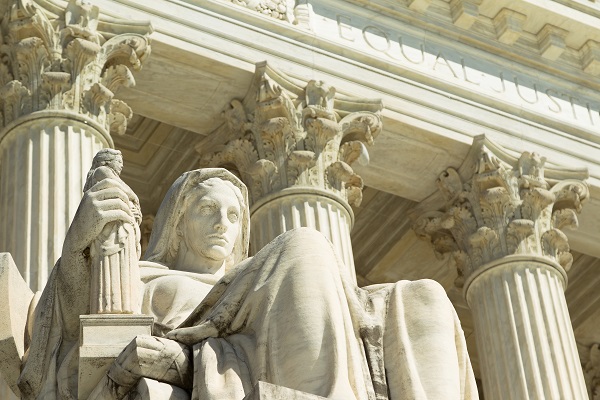The U.S. Court of Appeals for the Second Circuit held that a debt collection letter that informs the consumer of the total, present quantity of his or her debt satisfies section 1692g of the federal Fair Debt Collection Practices Act (FDCPA) notwithstanding its failure to inform the consumer of the debt’s constituent components or the precise rates by which it might later increase. The Court further held that such a letter does not violate section 1692e of the FDCPA for failure to inform the consumer that his or her balance might increase due to interest or fees when the letter…
Posts published in March 2019
The U.S. District Court for the Southern District of Florida recently denied a consumer’s motion for class certification in a putative class action against a debt collector. In so ruling, the Court concluded that the plaintiff consumer’s proposed class — which included members who did not make payments to the debt collector while also seeking actual damages as to proposed members who did make payments — presented individual issues concerning causation as to actual payments made in response to the collection letters at issue, and thus failed to overcome the predominance requirement under Fed. R. Civ. P. 23(b)(3). A copy…
The U.S. Supreme Court handed down its much-anticipated opinion in Obduskey v. McCarthy & Holthus LLP on March 20, ruling the federal Fair Debt Collection Practices Act does not cover persons engaged in “non-judicial foreclosures” except with respect to a single provision contained in the FDCPA. Colorado, like many western states, has a procedure that allows a lender to foreclose property without the need to file a lawsuit. Here, as you may recall, a Colorado borrower defaulted on his home loan and the mortgage servicer hired a law firm to pursue a non-judicial foreclosure. The borrower informed the law firm he was disputing…
The U.S. Court of Appeals for the Sixth Circuit held that a recent change to Ohio law involving notice of a defective lien had no bearing on a bankruptcy trustee’s ability to avoid the defective lien because such notice is irrelevant to a trustee’s status as a judicial lien creditor. Accordingly, the Sixth Circuit affirmed the Bankruptcy Appellate Panel’s upholding of the bankruptcy court’s denial of the mortgagee’s motion for judgment on the pleadings. A copy of the opinion in Donald Harker v. PNC Mortg. Co. is available at: Link to Opinion. The borrowers filed a chapter 7 bankruptcy petition that included…
The U.S. Court of Appeals for the Fifth Circuit recently held that Texas law contains no detrimental reliance exception to a lender’s unilateral right to withdraw an acceleration notice. A copy of the opinion in Jatera Corporation v. U.S. Bank National Association is available at: Link to Opinion. A borrower defaulted on a Texas home equity fixed adjustable rate note secured by a Texas home equity security instrument. In 2010, the mortgagee through its then loan servicer sent the borrower notice of its intent to accelerate the note and demanded full payment of the debt. The mortgagee filed suit and…
The U.S. Court of Appeals for the Seventh Circuit recently held that a mortgagee could unilaterally cancel an erroneously recorded satisfaction of the loan where the borrower had not yet detrimentally relied on the erroneous satisfaction. A copy of the opinion in Trinity 83 Development, LLC v. ColFin Midwest Funding, LLC is available at: Link to Opinion. A company took out a loan from a bank secured by a mortgage. The bank sold the loan to a debt buyer. The debt buyer used a debt collector to collect payments. The debt collector inadvertently recorded a satisfaction of the debt releasing the mortgage before the…
The Appellate Court of Illinois, First District, recently held that a borrower’s general denial that the mortgagee performed the conditions precedent of the mortgage contract prior to filing a foreclosure action was insufficient under Illinois Supreme Court Rules and therefore constituted a forfeiture of the issue. Accordingly, the Appellate Court affirmed the ruling of the trial court granting summary judgment in favor of the mortgagee. A copy of the opinion in The Bank of New York Mellon v. Wojcik is available at: Link to Opinion. After the borrower defaulted on her mortgage loan, the bank sent her a letter titled “Notice…
An entity whose principal business is to purchase debt, but did not itself collect the debt it purchased, was found to be a debt collector subject to the federal Fair Debt Collection Practices Act (FDCPA), even though the collection activity was undertaken by other entities. The Third Circuit Court of Appeals reached this decision by expanding the scope of the statute’s liability so far that it now falls into conflict with itself. Put another way, a creditor can be a debt collector of its own performing debt which it assigned to a third party to collect. But the third party…
The U.S. Court of Appeals for the Seventh Circuit recently held that a mortgagee’s failure to take a deficiency judgment against a borrower who filed bankruptcy in a concluded state foreclosure action precluded the mortgagee from making a deficiency claim in the borrower’s bankruptcy proceeding. A copy of the opinion in BMO Harris Bank N.A. v. Anderson is available at: Link to Opinion. Two borrowers received a loan secured by a mortgage. They defaulted on the loan and the mortgagee filed a two-count complaint in Illinois state court seeking relief under the mortgage and the note. One of the borrowers and his wife later filed…
A trio of bills currently pending in the New York State Senate would extinguish debt, require licensing and impose additional requirements in collection litigation. New York Senate Bill 691 and Senate Bill 2239 would completely extinguish the right to collect debt arising from a consumer credit transaction upon expiration of the statute of limitations. Senate Bill 691 goes a bit further by proposing to reduce the statute of limitations in “consumer credit transactions” to three years although it does provide certain exceptions. In addition, Senate Bill 691 would require certain disclosures to be provided to defendants in lawsuits brought on…
The U.S. Court of Appeals for the Seventh Circuit held that merely requiring extrinsic evidence to interpret a provision of a form contract does not render class certification improper, and that absent a more thorough explanation of its reasoning from the trial court, it could not uphold the trial court’s ruling decertifying the class. As a result, the Seventh Circuit vacated the decision of the trial court and remanded for further proceedings. A copy of the opinion in Red Barn Motors, Inc. v. NextGear Capital, Inc. is available at: Link to Opinion. The plaintiff auto dealerships entered into demand promissory note…
The U.S. Court of Appeals for the Eighth Circuit recently held that a borrower’s claims concerning lender-placed insurance practices were barred by res judicata, because the alleged practices were the subject of a class action suit in which the borrower was a class member who was provided notice of the settlement and did not object to the settlement. However, the Eighth Circuit also concluded that the servicer failed to establish that the statute of frauds barred the borrower’s claims concerning an alleged contract for interest rate reduction. A copy of the opinion in Calon v. Bank of America, NA is…












